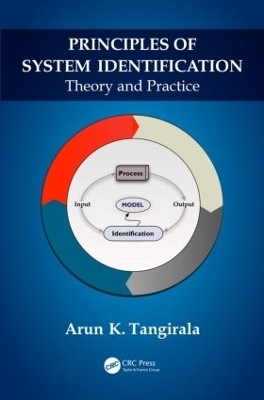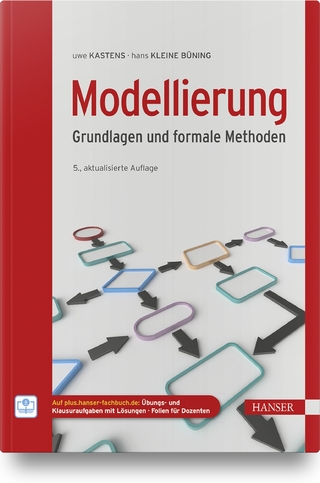
Principles of System Identification
Crc Press Inc (Verlag)
978-1-4398-9599-3 (ISBN)
- Titel z.Zt. nicht lieferbar
- Versandkostenfrei innerhalb Deutschlands
- Auch auf Rechnung
- Verfügbarkeit in der Filiale vor Ort prüfen
- Artikel merken
Vital to all data-driven or measurement-based process operations, system identification is an interface that is based on observational science, and centers on developing mathematical models from observed data. Principles of System Identification: Theory and Practice is an introductory-level book that presents the basic foundations and underlying methods relevant to system identification. The overall scope of the book focuses on system identification with an emphasis on practice, and concentrates most specifically on discrete-time linear system identification.
Useful for Both Theory and Practice
The book presents the foundational pillars of identification, namely, the theory of discrete-time LTI systems, the basics of signal processing, the theory of random processes, and estimation theory. It explains the core theoretical concepts of building (linear) dynamic models from experimental data, as well as the experimental and practical aspects of identification. The author offers glimpses of modern developments in this area, and provides numerical and simulation-based examples, case studies, end-of-chapter problems, and other ample references to code for illustration and training.
Comprising 26 chapters, and ideal for coursework and self-study, this extensive text:
Provides the essential concepts of identification
Lays down the foundations of mathematical descriptions of systems, random processes, and estimation in the context of identification
Discusses the theory pertaining to non-parametric and parametric models for deterministic-plus-stochastic LTI systems in detail
Demonstrates the concepts and methods of identification on different case-studies
Presents a gradual development of state-space identification and grey-box modeling
Offers an overview of advanced topics of identification namely the linear time-varying (LTV), non-linear, and closed-loop identification
Discusses a multivariable approach to identification using the iterative principal component analysis
Embeds MATLAB® codes for illustrated examples in the text at the respective points
Principles of System Identification: Theory and Practice
presents a formal base in LTI deterministic and stochastic systems modeling and estimation theory; it is a one-stop reference for introductory to moderately advanced courses on system identification, as well as introductory courses on stochastic signal processing or time-series analysis.The MATLAB scripts and SIMULINK models used as examples and case studies in the book are also available on the author's website: http://arunkt.wix.com/homepage#!textbook/c397
Arun K. Tangirala an Associate Professor at the Department of Chemical Engineering, IIT Madras, India. He obtained his B. Tech. (Chemical Engineering) from IIT Madras, India and Ph.D. (Process Control & Monitoring) from the University of Alberta, Canada in the years 1996 and 2001, respectively. Dr. Tangirala specializes in process control, modelling, monitoring and multivariate data analysis. His research group is focused on solving some of the cutting edge problems in data-driven analysis and modelling. A recipient of different teaching and research awards, he has conducted several workshops and short-term courses on data analysis and process identification.
PART I INTRODUCTION TO IDENTIFICATION AND MODELS FOR LINEAR DETERMINISTIC SYSTEMS. Introduction. A Journey into Identification. Mathematical Descriptions of Processes: Models. Models for Discrete-Time LTI Systems. Transform-Domain Models for Linear TIme-Invariant Systems. Sampling and Discretization. PART II MODELS FOR RANDOM PROCESSES. Random Processes. Time-Domain Analysis: Correlation Functions. Models for Linear Stationary Processes. Fourier Analysis and Spectral Analysis of Deterministic Signals. Spectral Representations of Random Processes. PART III ESTIMATION METHODS. Introduction to Estimation. Goodness of Estimators. Estimation Methods: Part I. Estimation Methods: Part II. Estimation of Signal Properties. PART IV IDENTIFICATION OF DYNAMIC MODELS - CONCEPTS AND. PRINCIPLES. Non-Parametric and Parametric Models for Identification. Predictions. Identification of Parametric Time-Series Models. Identification of Non-Parametric Input-Output Models. Identification of Parametric Input-Output Models. Statistical and Practical Elements of Model Building. Identification of State-Space Models. Case Studies. PART V ADVANCED CONCEPTS. Advanced Topics in SISO Identification. Linear Multivariable Identification. References. Index.
| Zusatzinfo | 11 Tables, black and white; 30 Illustrations, color; 178 Illustrations, black and white |
|---|---|
| Verlagsort | Bosa Roca |
| Sprache | englisch |
| Maße | 178 x 254 mm |
| Gewicht | 1782 g |
| Themenwelt | Mathematik / Informatik ► Informatik ► Theorie / Studium |
| Technik ► Elektrotechnik / Energietechnik | |
| Technik ► Nachrichtentechnik | |
| Technik ► Umwelttechnik / Biotechnologie | |
| ISBN-10 | 1-4398-9599-6 / 1439895996 |
| ISBN-13 | 978-1-4398-9599-3 / 9781439895993 |
| Zustand | Neuware |
| Haben Sie eine Frage zum Produkt? |
aus dem Bereich


